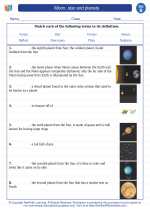Moon, star and planets -> endocrine system
Endocrine System
The endocrine system is a network of glands and organs that produce and release hormones to regulate various bodily functions. These hormones act as chemical messengers, traveling through the bloodstream to target cells and tissues, where they help regulate processes such as growth, metabolism, sexual development, and mood.Glands of the Endocrine System
- Hypothalamus: Located in the brain, it links the nervous system to the endocrine system via the pituitary gland.
- Pineal Gland: Also located in the brain, it produces the hormone melatonin, which regulates sleep-wake cycles.
- Pituitary Gland: Often referred to as the "master gland," it produces and releases a variety of hormones that regulate other glands, growth, and reproduction.
- Thyroid Gland: Produces hormones that regulate metabolism and growth.
- Parathyroid Glands: Located on the thyroid gland, they produce hormones that regulate calcium levels in the body.
- Adrenal Glands: Situated on top of the kidneys, they produce hormones that help regulate stress response, metabolism, and electrolyte balance.
- Pancreas: Produces insulin and glucagon, which regulate blood sugar levels.
- Ovaries: In females, they produce estrogen and progesterone, which regulate the menstrual cycle and reproductive system.
- Testes: In males, they produce testosterone, which regulates male reproductive functions and development.
Functions of the Endocrine System
The endocrine system plays a crucial role in regulating numerous bodily functions, including:
- Growth and development
- Metabolism
- Reproduction
- Stress response
- Regulation of blood sugar levels
- Regulation of electrolyte balance
- Sleep-wake cycles
Study Guide
When studying the endocrine system, it's important to understand the functions of each gland and the hormones they produce. Familiarize yourself with the role of hormones in regulating specific bodily functions such as metabolism, growth, and reproduction. Additionally, explore the interconnections between the endocrine system and other bodily systems, such as the nervous system, and understand how they work together to maintain homeostasis.
Be sure to review the various disorders that can arise from imbalances in the endocrine system, such as diabetes, thyroid disorders, and hormonal imbalances, and understand the potential treatments for these conditions.
Lastly, consider creating diagrams or charts to visually represent the different glands, their hormones, and their functions to aid in your understanding and retention of the material.
Remember to regularly review the material and seek clarification on any concepts that may be unclear to ensure a thorough understanding of the endocrine system.
[Endocrine System] Related Worksheets and Study Guides:
.◂Science Worksheets and Study Guides Second Grade. Moon, star and planets

 Activity Lesson
Activity Lesson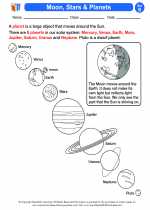
 Worksheet/Answer key
Worksheet/Answer key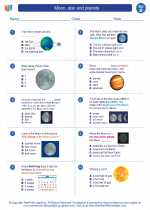
 Worksheet/Answer key
Worksheet/Answer key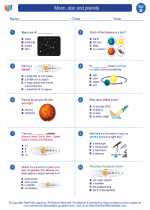
 Worksheet/Answer key
Worksheet/Answer key
 Vocabulary/Answer key
Vocabulary/Answer key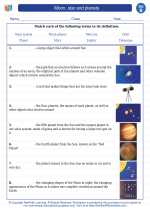
 Vocabulary/Answer key
Vocabulary/Answer key